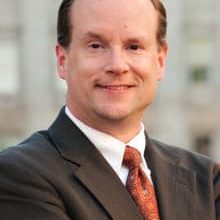

The average pay received by public school teachers in North Carolina this year was $49,837, up four percent from the 2015-16 school year. That was the largest pay hike for teachers in the United States, and boosted North Carolina’s ranking in average pay to 35th. Adjusted for cost of living, we rank 31st in the nation.
Keep in mind that these figures reflect actions taken last year by the General Assembly and former Republican Gov. Pat McCrory. His Democratic replacement, Roy Cooper, and the North Carolina Senate have already released 2017-18 budgets that include another large increase in teacher compensation. So it is likely that, unless many other states enact large pay hikes this year, North Carolina’s ranking in average teacher pay adjusted for cost of living will end up close to the national median next year.
And if you focus on that, you will be missing the real story.
I support the legislature’s teacher-pay raises, make no mistake. But if the intent were simply to raise average pay to some national benchmark, it would be wrongheaded. Most peer-reviewed academic studies of the issue find no statistically significant relationship between average teacher pay and educational outcomes such as student graduation rates or test scores.
It’s the quality of teaching that matters, of course. But teachers are no different from any other professionals, in that they vary in quality across what statisticians would call a “normal distribution.” A few teachers are spectacular. Some are very good. Many are average. Some are ineffective. A few are disastrously bad.
Teachers don’t underperform because they are underpaid. In most cases, raising their salaries won’t make them better teachers. On the other hand, high-performing teachers often have many other career options, both inside and outside education. Paying them more won’t necessarily make them better teachers, either, but it may keep them teaching in our classrooms instead of decamping to greener pastures.
The real story of the past several years is that North Carolina lawmakers have been restructuring the pay scale for teachers in ways intended to attract and retain high performers. For example, lawmakers have increased pay more for teachers early in their careers, which is when the largest gains in teacher performance tend to occur. Later in their careers, additional years of experience don’t appear to correlate with increases in teacher effectiveness, which again isn’t unique to education but is evident in other professions, as well.
North Carolina lawmakers have also funded pay increases and bonuses for teachers based on demonstrated high performance. At the same time, they’ve gotten rid of compensation practices that don’t result in higher teacher effectiveness or student gains, such as pay bumps for teachers who acquire graduate degrees (which has long been a way to spin the turnstiles at graduate schools of education, rather than a proven means of improving classroom instruction).
If you think of school employees as a political constituency lobbying against other interest groups to get as much tax money as possible during the legislative process, then these distinctions don’t matter a great deal. You may well think largely in terms of average teacher pay and cite the state’s national ranking when it is low enough to sound like a persuasive argument for more money.
But if your goal is to expand and enhance educational opportunity in North Carolina, then these distinctions are of primary importance. Over time, you want to structure the compensation and personnel systems of schools so that they encourage high-performing teachers to stay — and to work in our most challenging classrooms — while encouraging low-performing teachers either to improve rapidly or to find some other occupation better suited to their talents and skills.
There is plenty of room for debate about whether the specific policies enacted in North Carolina over the past three years will work as intended. No other state or school system has developed a perfect off-the-shelf model that we can just adopt. But to fixate on national rankings in average teacher pay misses the point entirely.
Editor’s Note: The John William Pope Foundation supports the work of EdNC.


